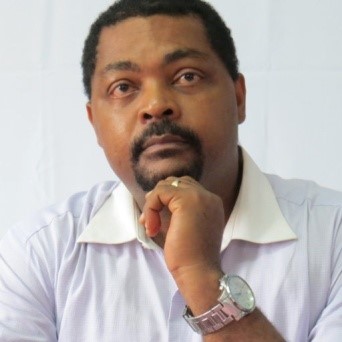Reporters Union, from grass to grace
I served as Assistant Secretary for the Sierra Leone Reporters Union for one term, and after that we handed over power to the current Amara Samura led executive. By virtue of the fact that he was elected in 2007, there are indications that his mandate shall come to an end by December of this year, all things being equal.
The creation of the Reporters Union by the IB Kargbo led SLAJ Executive was a direct response to calls for a system wherein, issues affecting reporters in the country could be advocated for in a much more formal and acceptable manner.
Therefore, when I.B Kargbo, as SLAJ President then came back from a meeting in Dakar Senegal, he mobilized us to ensure we get a formidable structure in place which could be use to agitate for matters affecting us and that was how the union came into being, with Brima Dawson Kuyateh, being the first President of the Union, and Theophilus Gbenda, as Secretary-General.
When the union was established  with the late Harry Yansaneh as founding members, it went through series of challenges, especially in terms of resources, but with perseverance, it was managed to the point that, it is now one of the main sub groups of the Sierra Leone Association of Journalists (SLAJ).
During our tenure in office, we did our best in advocating for better conditions of service for reporters in the country, although our advocacy did not, as a matter of fact get the result that we had anticipated initially. We also pursued the issue of late Harry Yansaneh, a fellow I told you earlier was a founding member of the union. He was killed by thugs allegedly acting on the directive of one Hon Fatmata Hassan, who at the time was a serving MP of then ruling SLPP, and cross carpeted to the ruling APC.
As part of our determination in making sure the deplorable working condition of reporters are addressed by proprietors of the various media houses, we decided to write an application letter to the Sierra Leone Labour Congress (SLLC) on January 17 2008, seeking an affiliation with that Trade Union body. Our executive also went the extra mile to ensure that the union gets recognition in most, if not all the district headquarter towns of Bo, Makeni Kenema and Kono. And we also ensured a collaborative environment between reporters and the Police Force and that was particularly so when one Alhaji Bangura was Police Media Director. We tried our best at least. But the current Amara Samura led Executive has also gone miles in taking the union from grass to grace. O yes, they have done well, and in my estimation, extremely well. I spoke with Samura in recent times and I was impressed to realize that his executive has continued to discuses issues bordering on the welfare of reporters and their relationship with media owners. A vibrant media could be ensured when reporters are well catered for, when their needs are met and when they are operating in an encouraging media environment.
Hon IB Kargbo, brain behind Reporters Union
On July 29 2008, Amara told me ‘we received a letter from the Sierra Leone Labour Congress  informing us that they have received our application letter and that they will be discussing our issue at the national executive council which is the second highest body of the congress. They indeed accepted our application and since then, several leadership training skills programmes for our executive and those in the regions were conducted’. This was a process we started and it is good that when Samura came, they pursued it and were able to gain result.  Now the objective of getting an affiliation with the Labour Congress of Sierra Leone is to enable the union to discuss and negotiate on behalf of their colleagues in any situation that may arise.
In December 2008, contacts were also made with the Ministry of Labour, Employment and Social Security for the registration of SLRU as a Trade Union group and the issuance of a Bargaining Certificate. In February 2009, his executive had a meeting with the Minister of Employment Minkailu Mansaray and his senior staff and several issues were discussed. After several meetings with the Registrar of Trade Unions and the acting Commissioner of Labour, the former wrote a letter to the Government Printer requiring him to publish in the Sierra Leone Gazette the application of SLRU for registration under the Trade Union Act (221).
I also asked Samura as to what  prompted them  to take such an action, and he explained that ‘ owners of media houses refused to cooperate with us when we wrote them letters requesting to know how many reporters they have in their organizations and to state who is registered with NASSIT or not. They did not only refused to respond to our letter but claimed that our executive do not have the legal mandate to speak on behalf of our colleagues. We then contacted the Labour Congress who advised that we try to affiliate with them so that they can recommend us for the certificate’
This is the most unfortunate aspect for reporters in the country; they are being paid pittance, and are hardly appreciated by ‘most’, not all media owners. I have worked with few papers and I know what used to operate. With the exception of a few, most papers don’t pay their reporters and this creates room for a corrupt media landscape. But what is even wrong for the Anti Corruption Commission to begin to look into these areas? I know of a particular paper which I worked with for about six months before leaving for another job with one NGO; this paper pays monthly salary, gives transport allowance, and there is a doctor that treats all staff when they are sick. This is encouraging. But not all of them are doing that!! The Amara Samura led executive has conducted media trainings for reporters.Â
It would be good to also state that the current executive of the union was able to organized the first ever SLAJ Presidential Debate in November 2008 at the Mass Communication building, Fourah Bay College which was aired live no all the radio stations across the country. This was in partnership with MACOSA at Fourah Bay College.
The executive has also just completed a joint SLP/SLRU training workshops in Freetown on December 15 -17 2008 and in Bo for the South East 29 September to 1 October 2009 targeting seventy three reporters.
Last week, they held a meeting with the Consultant for the British Trade Union, Sierra Leone Labour Congress on DFID sponsored capacity building workshops and now the union is working hard to establish a partnership between SLRU and the Union of Journalists in the United Kingdom. Mr. John Stiring, a former member of the journalist association in London is working hard with SLRU, Sierra Leone Labour Congress and the media in London to see which area they can intervene to assist reporters.
BINGO, I will say to the union. In a nutshell, the reporters union has continued to fly high and it is my view that the current executive of SLAJ must be proud of the union. Also, even as the Samura led executive is on the verge of getting retired, it is hoped that the incoming executive shall work in the interest of reporters and nothing else.
Stay with Sierra Express Media, for your trusted place in news!
© 2009, https:. All rights reserved.







